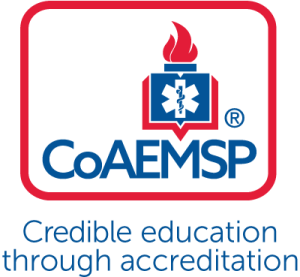The Paramedic Program at Braxton is structured around the curriculum established by the United States Department of Transportation. This comprehensive 1,136-hour program emphasizes three core instructional domains: cognitive, affective, and psychomotor learning.
To successfully complete the program, students must pass each component, which includes classroom instruction, hands-on skills training, hospital-based clinical rotations, and field internships. The EMS Department at Braxton has outlined specific educational objectives to guide students through the Paramedic diploma program.
Upon fulfilling all program requirements, students may be eligible to take the National Registry of Emergency Medical Technicians (NREMT) cognitive examination.

The Paramedic Program is approved by the Florida Department of Health, Bureau of Emergency Medical Services.
A Paramedic is an allied health professional whose primary role is to deliver advanced emergency medical care to critically ill or injured patients. Working within the broader Emergency Medical Services (EMS) system and under medical oversight, paramedics are trained to perform complex assessments, administer life-saving interventions, and facilitate patient transport using both basic and advanced medical equipment.
Both CAAHEP-accredited Paramedic programs and those holding a Letter of Review (LoR) from the Committee on Accreditation of Educational Programs for the Emergency Medical Services Professions (CoAEMSP) are required to track and report annual outcome measures to CoAEMSP. These measures serve to monitor program performance and ensure continued alignment with national accreditation standards.
This data is only for the CoAEMSP 2024 annual reporting and does not include regular retention and placement rates for ABHES, which are above 70% for 2022-2024
The most current CoAEMSP Annual Report was for the calendar year 2024.
| Outcome | 2024 | 2023 | 2022 |
| Retention | TBD | 94% | 92% |
| NREMT 1st Time Pass Rate | 74% | 57% | 68% |
| NREMT Pass Rate within 3 attempts | 85% | 83% | 86% |
| Placement | TBD | 94% | 84% |
If the program has previously reported outcomes, then those outcomes should remain, and the statement should also be added.
Foundational Medical Knowledge
Introduce students to various types of healthcare-related laws.
Provide 4 hours of instruction on HIV/AIDS to enhance awareness and response.
Teach fundamental concepts of anatomy and physiology.
Develop a foundational understanding of the cardiovascular system.
Offer a basic overview of trauma and trauma alert criteria.
Introduce medical, gynecological, and obstetric emergencies along with appropriate treatment protocols.
Pharmacology and Medication Administration
Provide an introduction to pharmacology, including common treatments and their effects on the human body.
Train students to accurately calculate drug dosages and formulas.
Instruct on the preparation and administration of correct medication dosages, including infusion techniques.
Teach proper intravenous (IV) placement and medication administration procedures.
Assessment and Clinical Skills
Prepare students to perform both basic and advanced patient assessments.
Reinforce all foundational EMT skills, including CPR techniques.
Provide additional instruction and practice in IV therapy and medication administration.
Ensure proficiency in interpreting EKG strips and 12-lead ECGs, and selecting appropriate treatments.
Prepare students to act effectively in high-pressure medical and trauma care situations.
Engage students in realistic lab-based scenarios to simulate real-life emergency situations.
Foster critical thinking and decision-making through hands-on practice in a controlled environment.
Certifications and Advanced Training
Support successful completion of advanced certifications, including:
Advanced Cardiovascular Life Support (ACLS)
Pediatric Advanced Life Support (PALS)
Prehospital Trauma Life Support (PHTLS)
Advanced Medical Life Support (AMLS)
Leadership and Teamwork
Train students to function confidently and competently in the role of team leader during emergency medical situations.
Main Campus
2070 Carrell Rd Suite A
Fort Myers, FL 33901
Office: (239) 992-4624 / (239) 992-1624
Phone: 888-983-2423
Email: info@Braxton.edu
Mon – Fri 9:00A.M. – 5:00P.M.
Registration Dates
Braxton College
Summer and Fall Registration are now open
Enroll Today
